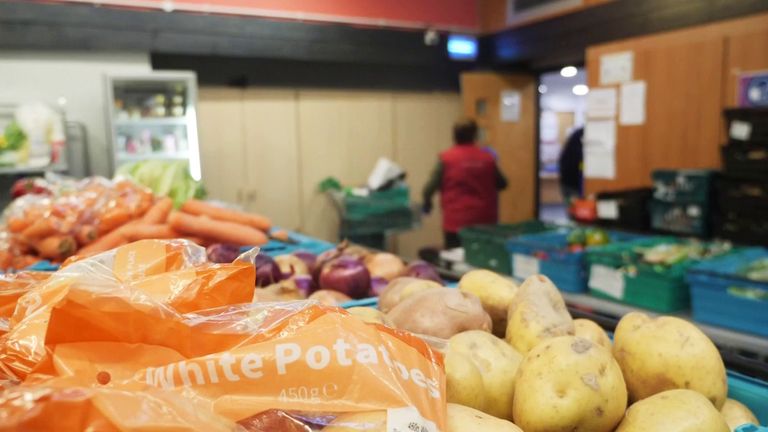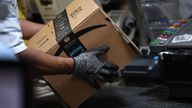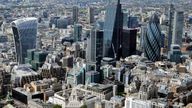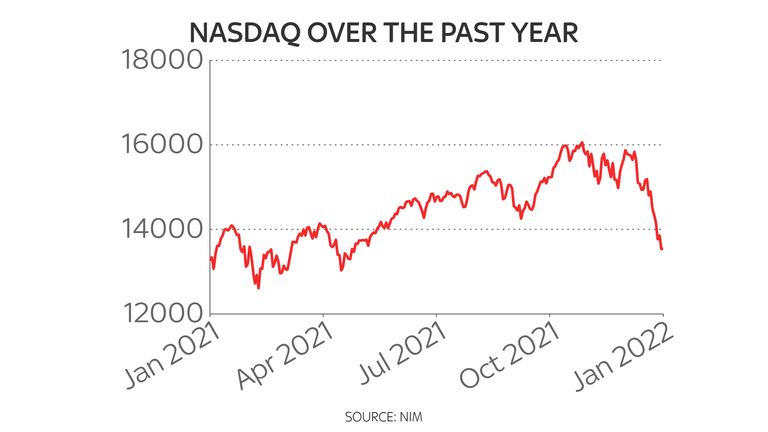Global markets volatile as sustained action to target inflation looms large
The pound has fallen sharply against the dollar and stock market values are volatile after the US central bank indicated it was to launch a concerted effort to tackle a surge in COVID-linked inflation.
The Federal Reserve placed financial markets – which have relied on its cheap stimulus cash for almost two years – on notice that interest rates were likely to start rising in a sustained fashion from March.
It also reaffirmed that its bond purchase programme was to end that month as attention turns from COVID crisis support to taming the pace of price rises.
US inflation, at 7% in December, is at its highest level for 40 years. It has surged globally, including in the UK, on the back of unprecedented spikes in energy costs and supply chain disruption.
Live COVID updates from the UK and around the world
Analysts warned of the increased prospect of a sustained period of volatility for values.
They said what had initially spooked markets was the strength of the Fed’s remarks – with Fed funds futures, which track short-term rate expectations, now pricing in more than four rate increases this year.
The investment platform AJ Bell reported expectations of four rate rises by the Bank of England this year, with a 95% chance of a hike to 0.5% next Thursday when the next policy decision is due.
The International Monetary Fund had warned this month that rising US rates would have damaging knock-on effects for emerging economies, as the cost of serving their debts would rise on the back of a likely stronger dollar.
While US markets had little time to react following the conclusion of Fed chair Jay Powell’s news conference on Wednesday, futures were down by more than 1.5% on Thursday to build on late losses.
Stocks plunged in Asia overnight to a 15-month low with Japan’s Nikkei diving by 3%.
European markets were tipped to slide by 3% at the open but the falls were far more muted than had been predicted just an hour before trading began.
The FTSE 100 saw a decline of 1% initially while there were similar dips in France, Germany, Italy and Spain.
However, bank shares led a recovery back to the black Europe-wide as the morning progressed – partly thanks to stronger than expected results from Deutsche Bank in Germany but also on the expectation that higher interest rates will boost the earnings of major lenders.
HSBC saw gains of 3% in London while Barclays and Lloyds were both up by more than 1.5%.
A strengthening of the dollar saw sterling take a hit of more than half a cent to a 2022 low below $1.34.
That also supported the FTSE’s tentative gains because of its many dollar-earning constituent companies.
The prospect of rising US rates has driven Wall Street stocks from record highs so far this year with tech shares, seen as a greater risk in a higher inflationary environment, enduring the worst pain.
The S&P 500 is down by almost 9% in the year to date while the Nasdaq has slumped by 13%.
Ipek Ozkardeskaya, senior analyst at Swissquote, said of the market response: “Jerome Powell didn’t really sooth investors’ nerves at yesterday’s policy statement.
“He said that the Federal Reserve won’t refrain from back-to-back rate hikes to get the inflation situation straight.
“His words sent the US stocks lower, and the US dollar higher.
“Apparently, the recent market rout hasn’t given cold feet to Powell and the Fed members, meaning that they are ready to take on more losses on the equities front to get inflation under control.”




